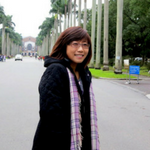
Yvonne Hsiung
Mackay Medical College, Taiwan
Title: Development and initial cross-cultural validation of the Confucian Orientation Beliefs scale (COB)
Biography
Biography: Yvonne Hsiung
Abstract
A series of cross-cultural studies were conducted to develop and validate a cultural measure, Confucian Orientation Beliefs (COB) Scale. The original 66-item acculturation scale was constructed among Chinese-American immigrants residing in greater Chicago area (n=211) with specific aims to assess a broad range of traditional Chinese beliefs. Through examinations of content validity, internal consistency (α = .86), and an inter-item correlation of .27 (p<.001), the initial exploratory factor analysis (EFA) suggested 3 principal components: familialism (α = .84), male and physician patermalism (α = .82), and death taboos (α = .89). CO among overseas Chinese was found highly positively correlated with American acculturation, attitudes toward life-sustaining treatment, and palliative care usage. A following confirmatory factor analysis (CFA) was supportve with a goodness of fit of 0.95 in a relatively smaller Taiwan suburban sample (n = 122). Further EFA and CFA among hospitalized patients from various Taiwan areas (n =508) yielded a slightly different structure: male paternalism, filial piety, and death taboo joinly captured a salient cultural factor (α = .83); a single dimension was revealed as an individual’s propensity to conform to Confucian traditions, and this orientation is specifically related to life-sustaining treatment attitudes (AVE= 55.39, AGFI= .966, p= .009). A data-driven and efficient tool, the 6-item COB scale (short form), was created with strong psychometric properties. While CO remains prominent in modern Chinese-ethnic societies to affect family caregivers’ life-sustaining treatment decision-making, future research is necessary to replicate studies for temporal stability across heterogeneous Chinese-speaking and Confucianism-oriented samples.

